Officials from the provincial Center for Disease Control catch mosquitoes to study and evaluate the situation of disease vectors. -Photo: H.LE
Catching mosquitoes for research
In March 2021, in Truong Son commune (former Quang Ninh district), a case of domestic malaria appeared in Doc May village, close to the Vietnam-Laos border. Immediately, a special working group of the Provincial Center for Disease Control (CDC) in coordination with the Quang Ninh District Health Center and the commune health station crossed mountains and waded through streams to bring medical equipment and medicine to the village, implementing measures to prevent and control malaria. People were examined, diagnosed, had blood samples taken for testing, and were given malaria prevention medicine. The working group organized the spraying of chemicals to kill mosquitoes, instructed people to clean the environment, clear bushes, and sleep under mosquito nets.
Dr. Nguyen Ngoc Anh, head of the special working group in Doc May village at that time, shared: In order to quickly find a way to prevent the increase in malaria cases, the staff of the Department of Parasitology and Entomology of the provincial CDC used their bodies as "bait" to catch mosquitoes for research and conduct malaria parasite tests to assess the situation of disease vectors at the location where mosquitoes appeared and in neighboring areas. This method helps the health sector make accurate assessments and promptly come up with effective epidemic prevention and control solutions. Thanks to that, the outbreak of an epidemic was prevented at the place where the first case was detected.
Once the locality with the highest number of imported malaria cases in the province from 2022 to present with 7 cases in 10 communes in the malaria-endemic area, Bo Trach has just been recognized as a malaria-free area after persistent efforts to effectively implement disease prevention and control measures.
According to Dr. Do Xuan Tinh, Head of the Department of Disease Control - Addiction Treatment Consulting (Bo Trach Regional Medical Center), imported malaria cases in the area come from Binh Phuoc province (old) and Thailand and Congo.
After receiving information from the commune health station and hospitals, the unit investigated, reported the case as well as took blood for rapid diagnostic tests and blood smear tests to accurately determine the type of malaria the patient had. All cases were detected early and treated promptly within 48 hours, preventing transmission to the community.
“For patients with high fever, chills, sweating, a history of going to the forest, often sleeping in the fields or working in areas where malaria is prevalent, we recommend that people go to medical facilities to be tested, diagnosed with malaria and treated as soon as possible,” Dr. Nguyen Thanh Tam, Head of Xuan Trach Medical Station (Phong Nha Commune, Quang Tri Province) shared his experience.
In order to proactively prevent and control malaria in the area, the Bo Trach Regional Health Center has closely monitored cases of workers returning from malaria-endemic areas. Health stations have proactively increased detection, monitoring and timely reporting of cases in the area; and disseminated malaria prevention and control measures to the people. At the same time, they have organized spraying of chemicals to kill mosquitoes, impregnating mosquito nets, and killing larvae, preventing the spread and outbreak of epidemics.
Malaria is one of the leading infectious diseases that the World Health Organization (WHO) and the international community are working to eliminate. Malaria eradication not only brings direct benefits to individual health, but also has far-reaching positive impacts on socio-economic development, contributes to global health goals and strengthens the ability to respond to future health challenges. |
Absolutely not subjective
From 2022 to present, Quang Binh province (old) has not recorded any domestic malaria cases, no deaths due to malaria and no malaria epidemics. On June 30, 2025, Quang Binh was recognized by the Central Institute of Malaria, Parasitology and Entomology as meeting the criteria for eliminating malaria on a province-wide scale and moving to the stage of "preventing and controlling malaria re-emergence".
Medical staff instruct people on how to clean the environment and kill mosquito larvae. -Photo: H.LE
According to Dr. Do Quoc Tiep, Deputy Director in charge of CDC Quang Tri: To reach the finish line earlier than initially expected, CDC has had synchronous solutions. First, we must concentrate all our efforts to reach the finish line, build a LTSR strategy to mobilize the participation of the whole society and invest in the local budget, maintaining sustainability.
At the same time, promote communication and policy advocacy; maintain and rearrange the system of staff doing professional work - testing system; monitor cases, integrate the treatment system in healthcare, proactively monitor and prevent vectors; train and educate human resources; maintain the monitoring and reporting system; apply information technology.
The achievements of LTSR are thanks to the attention and direction of the Provincial People's Committee and the Department of Health; the efforts and enthusiasm of the medical staff and the consensus and response of the people. In addition, there is support and investment in drugs, materials, chemicals, funding... from the Regional Initiative Project to Prevent and Eliminate Artemisinin-Resistant Malaria.
The recognition of LTSR earlier than expected demonstrates the determination and outstanding efforts of the provincial health sector. However, this does not mean that we should be subjective about malaria. This is still a potential threat and can recur at any time.
Factors that cause the spread of malaria still exist, such as: drug-resistant malaria parasites, chemical-resistant mosquitoes, and pathogens that are always present in the community; population movements that are difficult to control... Therefore, it is necessary to continue monitoring, testing, and raising public awareness to prevent the return of malaria.
“After the merger of Quang Binh and Quang Tri provinces, malaria prevention, control and elimination will face numerous difficulties, because the area is larger, especially in mountainous and border areas, with long and difficult roads; some areas are currently experiencing malaria. It is forecasted that in the coming time, the situation of malaria patients in communes in Huong Hoa district (old) will become more complicated and tend to increase. The provincial CDC will continue to coordinate with units and localities to implement prevention and control measures to soon complete malaria elimination in the entire new Quang Tri province, according to the roadmap set out by the Ministry of Health,” emphasized Deputy Director in charge of the provincial CDC Do Quoc Tiep.
Huong Le
Source: https://baoquangtri.vn/loai-tru-benh-sot-ret-ve-dich-som-195633.htm



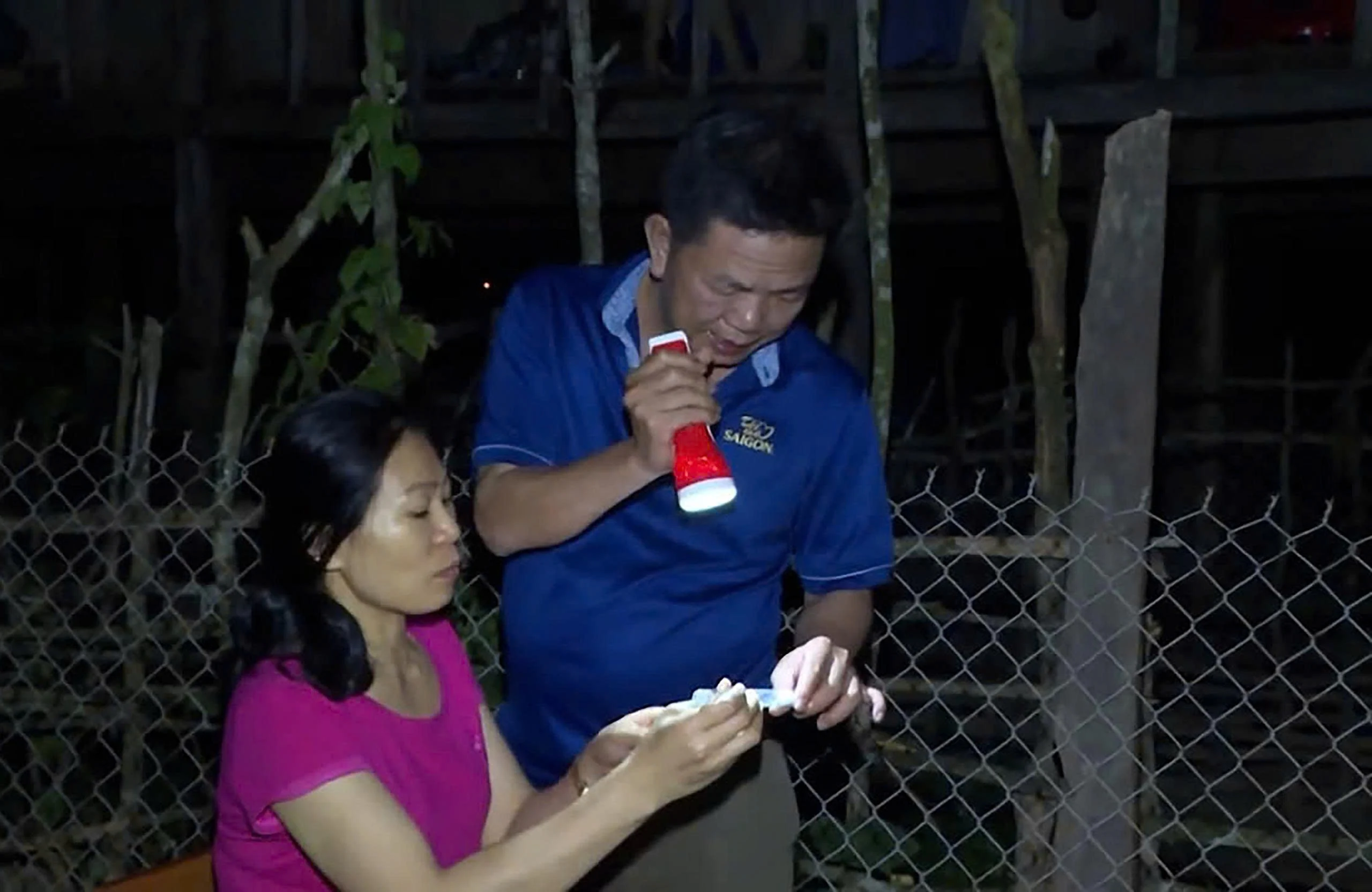
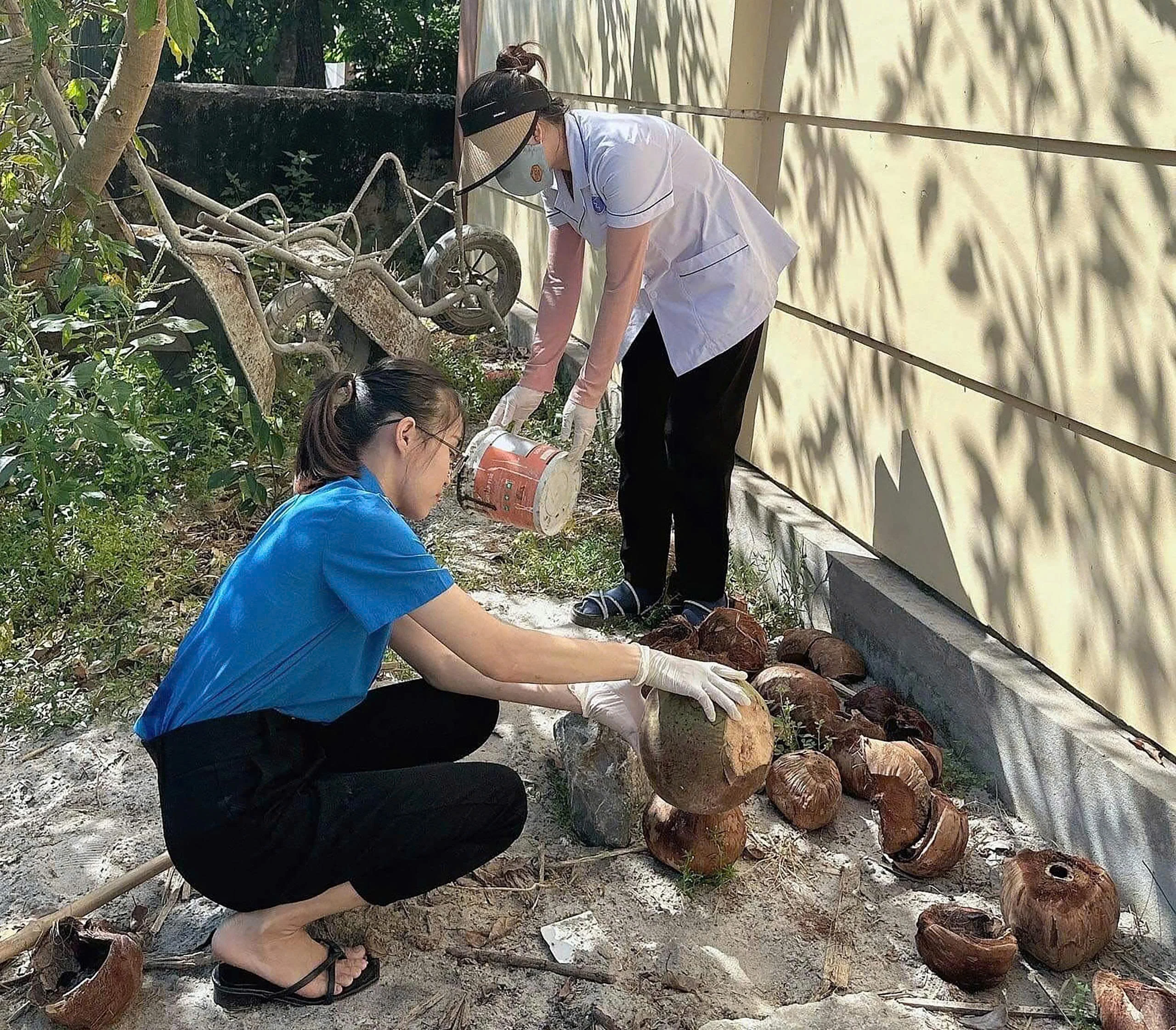
![[Photo] Special art program "Da Nang - Connecting the future"](https://vphoto.vietnam.vn/thumb/1200x675/vietnam/resource/IMAGE/2025/9/2/efdd7e7142fd45fabc2b751d238f2f08)

![[Photo] National Assembly Chairman Tran Thanh Man meets with First Secretary and President of Cuba Miguel Diaz-Canel Bermudez](https://vphoto.vietnam.vn/thumb/1200x675/vietnam/resource/IMAGE/2025/9/2/c6a0120a426e415b897096f1112fac5a)
![[Photo] Lao President Thongloun Sisoulith and President of the Cambodian People's Party and President of the Cambodian Senate Hun Sen visit the 95th Anniversary Exhibition of the Party Flag Lighting the Way](https://vphoto.vietnam.vn/thumb/1200x675/vietnam/resource/IMAGE/2025/9/2/3c1a640aa3c3495db1654d937d1471c8)
![[Photo] Ho Chi Minh City residents show their affection to celebrate the 80th anniversary of the August Revolution and National Day September 2](https://vphoto.vietnam.vn/thumb/1200x675/vietnam/resource/IMAGE/2025/9/3/55d860cbb63a40808e1e74ad9289b132)





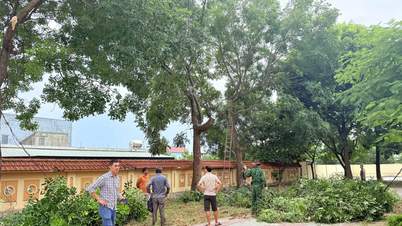













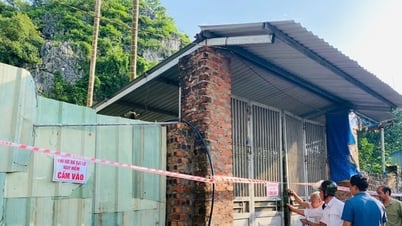










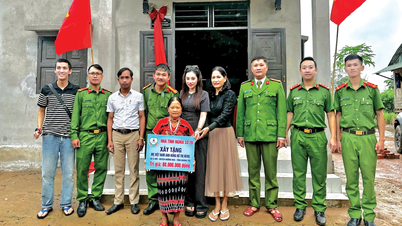












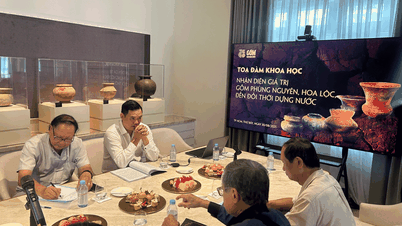

























































Comment (0)